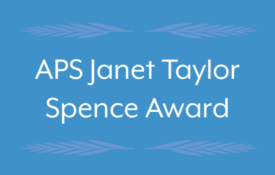-
Social Media is Riskier for Kids than ‘Screen Time’
Suppose your 13-year-old daughter wants to subsist on candy during this drawn-out pandemic, and she challenges you to prove that candy is bad for her. For help, you turn to the Internet — and find many newspaper articles with headlines like “Don’t freak out about sweets for teens!” You are surprised to find that many of the scientific papers these articles are based on use a very broad definition of “sweets” — one that included not only candy and soda but also fresh fruit, carrots, and beets because of their sugar content. But you wonder: What if the research had been based on what your daughter is really after — junk foods with lots of refined sugar, such as candy and soda?
-
If Everything Is ‘Trauma,’ Is Anything?
The man had been effusive, at first — sending compliments, engaging in witty back-and-forths, making a playlist that included that song by Mazzy Star (you know the one). And then, suddenly, he wasn’t. As it turned out, the guy had sent that same playlist to multiple women. He’d allegedly sent at least one of them an unsolicited nude photo. As he woke up next to one woman, he was planning that night’s date with another. Like so many online daters before him, Caleb was a creep. But in the language of TikTok — and, perhaps, the language of our current moment — he was more than that: He was pathological.
-
Sigal Barsade, 56, Dies; Argued That It’s OK to Show Emotions at Work
Sigal Barsade, whose studies of organizational culture charted the internal dynamics of the American workplace as precisely as any episode of “The Office,” and who advised countless companies on how to embrace and nurture their employees’ emotional well-being, died on Feb. 6 at her home in Wynnewood, Pa. She was 56. Her husband, Jonathan Barsade, said the cause was a brain tumor. Dr.
-
What Science Still Can’t Explain About Love
... It turns out they grapple with the same question as matchmakers, romance authors, poets, and many others. “The big mystery is — do you really know who you want?” says Dan Conroy-Beam, a University of California, Santa Barbara psychologist who studies relationship formation. The question seems simple, but it’s not trivial. A lot of time, energy, and heartache goes into finding solid relationships. “In a lot of senses, who you choose as a partner is the most important decision you’ll ever make,” Conroy-Beam says.
-
Why Simple Is Smart
A few years ago, a young writer asked me if I had any tips for an aspiring journalist. My first instinct was to say no. My career has been full of hard work but also quirky luck, and I think everybody should distrust individuals who claim that the path to success is a highly specific set of circumstances that just happens to match, step for step, the story of their life. A rant about selection bias seemed misplaced, though. So instead I shared a few organizing principles that I’ve relied on for nonfiction writing, and I’m sharing them again, below. What follows is hardly Strunk and White, but some may find it helpful. Simple is smart. High school taught me big words.
-

Eight Psychological Scientists Receive 2022 APS Janet Taylor Spence Award for Transformative Early-Career Contributions
The Spence Award recognizes APS members who have made transformative early career contributions to psychological science.

